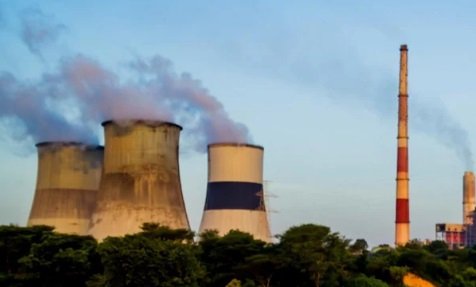
India is taking significant strides in addressing climate change with the creation of its Carbon Credit Trading Scheme (CCTS), first announced in June 2023. This ambitious initiative is part of India’s broader efforts to reduce harmful emissions across various industries and transition toward a more sustainable future. By establishing a carbon market, the CCTS will encourage companies to either cut their emissions or offset them by purchasing carbon credits from those who have successfully reduced theirs.
When Will the CCTS Start?
While the framework of the CCTS was outlined by the Bureau of Energy Efficiency (BEE) in August 2024, specific emission reduction targets that are essential for the system to function are still pending. These targets will dictate how much emissions reduction each industry must achieve, providing the basis for the trade of carbon credits. BEE officials anticipate that the CCTS could be operational by 2026, marking a key milestone in India’s efforts to combat climate change.
Understanding the CCTS
The Carbon Credit Trading Scheme (CCTS) will serve as a mechanism that incentivizes businesses to limit or reduce their carbon emissions. Companies that successfully lower their emissions below the required threshold will earn carbon credits, which they can then sell to others struggling to meet their targets. This market-based approach aims to create flexibility for businesses while driving overall reductions in greenhouse gas emissions.
The CCTS aligns with India’s commitment to the Paris Agreement of 2016, under which the nation pledged to reduce its emissions intensity by 45% from 2005 levels by 2030. This goal is crucial for India’s economic development, as it seeks to minimize pollution without hindering growth.
India’s Emission Reduction Goals
India has set ambitious climate targets beyond 2030. The country aims to achieve net-zero emissions by 2070, meaning that by then, India plans to balance the amount of greenhouse gases it emits with the amount it removes from the atmosphere. This long-term objective is vital for India’s contribution to global climate change mitigation and for managing the severe environmental challenges posed by climate change within the country.
Why is India Introducing the CCTS?
India’s decision to establish a carbon market has been influenced by international trends and policies. One significant factor is the European Union’s Carbon Border Adjustment Mechanism (CBAM), which is set to take effect in 2026. The CBAM will impose a tax on imported goods based on the emissions produced during their manufacturing process, pushing countries to adopt greener production methods to remain competitive in global markets.
Countries like China and Indonesia have already developed their own carbon markets, prompting India to follow suit. However, the success of India’s CCTS will hinge on the ability to set robust emission reduction targets and enforce compliance among industries.
What is a Carbon Market?
A carbon market is a system that enables companies to trade carbon credits, which represent the reduction of one ton of carbon dioxide (CO2) emissions. Companies that exceed their emission targets must purchase these credits, while those that reduce their emissions can sell the excess credits they’ve earned.
The concept of carbon markets gained global traction with the Kyoto Protocol in 1997, and several regions, including California and the European Union, have successfully implemented cap-and-trade systems to curb emissions. Additionally, voluntary carbon markets allow companies or individuals to buy credits to offset their emissions, contributing to sustainable development and biodiversity conservation.
Innovative technologies, such as blockchain, are being explored to enhance the transparency and efficiency of these markets, ensuring accountability and fostering trust among participants.
Summing Up
India’s Carbon Credit Trading Scheme (CCTS) represents a bold move toward reducing the nation’s carbon footprint and meeting its international climate obligations. By 2026, the launch of this carbon market could become a key tool in driving emissions reductions across industries, fostering innovation in clean technologies, and positioning India as a leader in the global fight against climate change. The success of the CCTS will depend on setting clear emission reduction targets and ensuring industries are motivated to actively participate in this transformative initiative.

